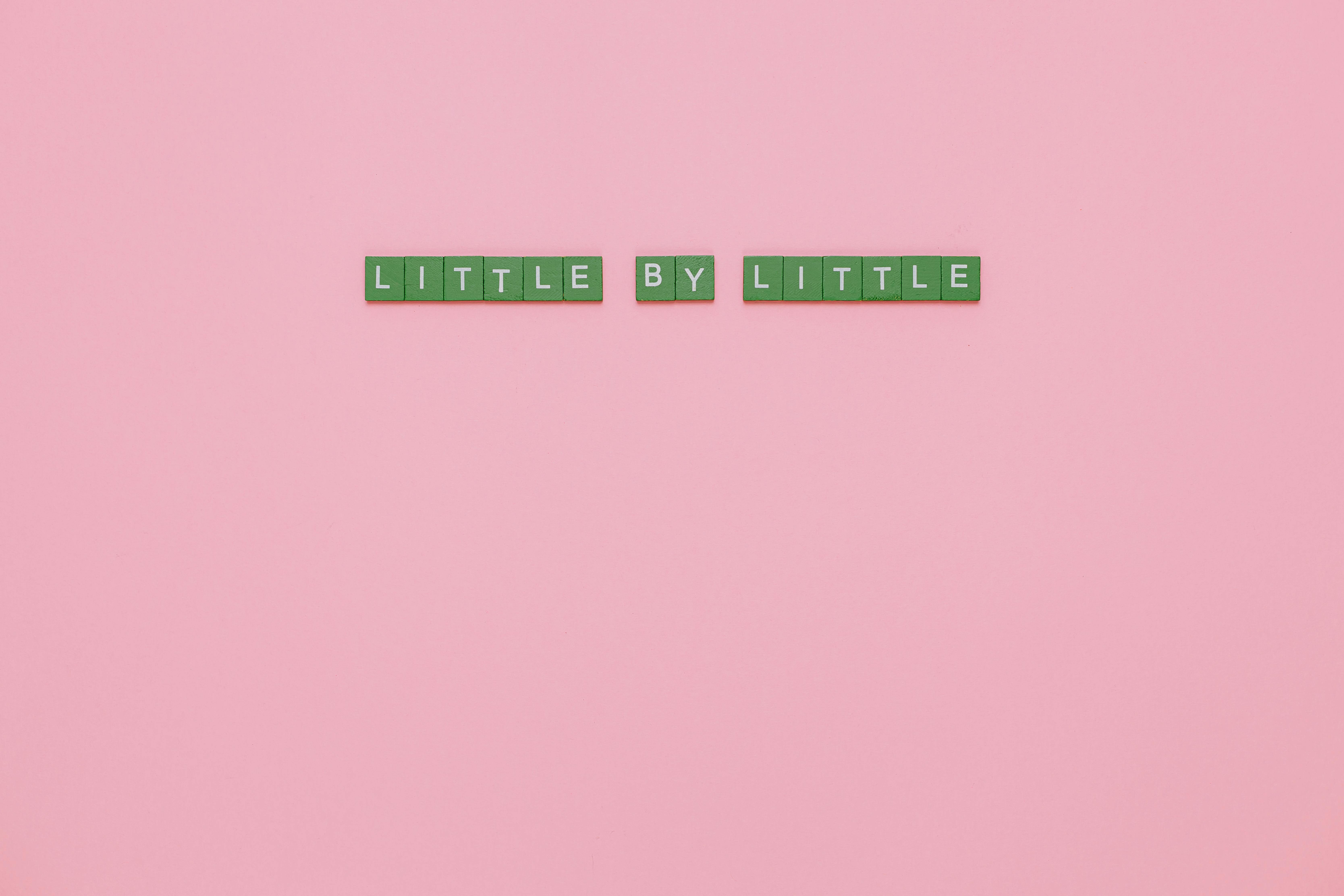Are you facing a challenging divorce and wanting to avoid the acrimony and lengthy court battles? Look no further than Collaborative Divorce, a compassionate and effective approach to resolving your marital dissolution. This revolutionary method brings together both parties and their attorneys to work cooperatively towards a mutually beneficial agreement, addressing your family’s unique needs and concerns. With Collaborative Divorce, you’ll have the opportunity to express your desires, negotiate directly with your spouse, and create a customized solution that prioritizes the best interests of everyone involved. Say goodbye to the stress and animosity of traditional divorce proceedings and embrace a more amicable path forward with Collaborative Divorce. Call our trusted attorney today to take the first step towards a brighter future.
What is a Collaborative Divorce?
Definition
Collaborative divorce is a process in which both parties, along with their respective attorneys, work together to reach a settlement and avoid litigation. It is a respectful and cooperative approach to divorce that prioritizes open communication, transparency, and problem-solving. Unlike traditional divorce proceedings, collaborative divorce encourages a focus on finding mutually beneficial solutions rather than fighting in court.
Key Principles
The key principles of collaborative divorce revolve around cooperation, transparency, and respect. Both parties and their attorneys commit to resolving disputes through negotiation rather than litigation. They agree to openly share information and work towards a mutually satisfactory outcome. Throughout the process, the focus remains on finding solutions that meet the needs and interests of both parties, particularly when it comes to matters such as child custody, division of assets, and spousal support.
Benefits of Collaborative Divorce
Collaborative divorce offers several benefits compared to traditional divorce proceedings. Firstly, it promotes a more amicable and respectful approach, which can help preserve relationships and minimize the emotional toll on all parties involved. Additionally, collaborative divorce is often more cost-effective than litigation since it avoids lengthy court battles. It also allows for more efficient resolution, as both parties are actively engaged in finding solutions rather than waiting for court dates. Finally, collaborative divorce provides greater privacy and confidentiality, as the proceedings are conducted in a private setting rather than in a public courtroom.
How Does Collaborative Divorce Work?
Initial Consultation
The collaborative divorce process typically begins with an initial consultation, during which both parties meet with their respective attorneys to discuss their goals, concerns, and the feasibility of collaborative divorce in their specific situation. This consultation provides an opportunity to understand the process better, ask questions, and determine if collaborative divorce is the right approach for both parties.
Selecting Collaborative Professionals
Once both parties have decided to pursue collaborative divorce, the next step is to select the collaborative professionals who will assist them throughout the process. This may include collaborative lawyers, divorce coaches, financial specialists, and child specialists, depending on the specific needs and circumstances of the case.
Creating the Collaborative Team
Once the collaborative professionals have been selected, they will work together to create a collaborative team. This team will meet regularly to discuss and strategize how to best navigate the divorce process and reach a mutually satisfactory settlement. The collaborative team ensures that all aspects of the divorce, such as legal, emotional, financial, and parenting issues, are addressed and resolved effectively.
The Participation Agreement
Before proceeding with the collaborative divorce process, both parties and their attorneys will sign a participation agreement. This agreement outlines the commitment to collaborative divorce and sets forth the guidelines and expectations for all involved. It emphasizes the importance of openness, honesty, and good faith negotiations throughout the process.
Disclosure and Information Exchange
A critical aspect of collaborative divorce is the exchange of information. Both parties are required to provide full and honest disclosure of all relevant financial details, such as income, assets, debts, and expenses. This transparency ensures that both parties have a complete understanding of the financial landscape and allows for more informed decision-making during negotiations.
Negotiations and Problem-Solving
Once the necessary information has been exchanged, the collaborative team will facilitate negotiations and problem-solving sessions. These sessions provide opportunities for both parties to express their concerns, voice their interests, and work towards finding creative and mutually beneficial solutions. The collaborative professionals play a crucial role in guiding and facilitating the negotiation process, ensuring a fair and balanced outcome.
Reaching a Settlement
The goal of collaborative divorce is to reach a settlement that both parties find satisfactory. Once a settlement has been reached, it is formalized and documented in a legally binding agreement. This agreement outlines the terms and conditions of the divorce, including matters such as child custody, visitation schedules, division of assets, and spousal support. It is important to note that the settlement reached through collaborative divorce is legally binding and enforceable, providing both parties with the security and certainty they need to move forward.

Why Choose Collaborative Divorce?
Preserving Relationships
One of the primary reasons to choose collaborative divorce is its focus on preserving relationships. By working together in a cooperative and respectful manner, both parties can minimize the damage and animosity often associated with traditional divorce litigation. This can be particularly beneficial when there are children involved, as it allows for co-parenting relationships to remain intact and ensures a smoother transition for the entire family.
Privacy and Confidentiality
Collaborative divorce offers greater privacy and confidentiality compared to litigation. The proceedings take place in a private setting, away from the public eye, which allows for open and honest discussions without the fear of sensitive information becoming public. This confidentiality can provide both parties with a sense of security and comfort, as they can address personal and financial matters without unnecessary exposure.
Cost-Effective
Collaborative divorce is often more cost-effective than traditional divorce proceedings. By avoiding protracted court battles and reducing the need for multiple hearings and motions, the collaborative process can save both parties significant legal fees. Additionally, the negotiations and problem-solving sessions in collaborative divorce are typically more efficient, as both parties are actively engaged in finding solutions, which can further reduce costs.
Efficient Resolution
Collaborative divorce promotes a more efficient resolution compared to litigation. Since both parties are actively involved in the negotiation process, decisions can be made quickly, rather than waiting for court dates and judicial decisions. This expedites the resolution of the divorce and allows both parties to move forward with their lives more promptly.
Reduced Emotional Impact
Divorce is an inherently emotional process, and collaborative divorce aims to reduce the emotional impact on both parties. By encouraging open communication, respect, and problem-solving, the collaborative process helps minimize conflict and animosity. This not only results in a less emotionally draining experience but also sets the foundation for healthier post-divorce relationships, particularly in cases involving co-parenting.
Understanding the Role of Collaborative Professionals
Collaborative Lawyers
Collaborative lawyers play a vital role in guiding both parties through the divorce process. They provide legal advice, explain the relevant laws and regulations, and ensure that their clients’ rights are protected. Collaborative lawyers work closely with their clients’ best interests in mind, advocating for fair settlements and helping their clients make informed decisions.
Divorce Coaches
Divorce coaches are experts in family dynamics and the emotional aspects of divorce. They provide emotional support and guidance, helping individuals navigate through the often challenging emotions that arise during the divorce process. Divorce coaches facilitate effective communication between both parties and assist in managing conflicts, promoting a more positive and constructive environment.
Financial Specialists
Financial specialists, such as financial planners or accountants, provide expertise in navigating the financial implications of divorce. They help both parties understand their financial situations, identify assets and debts, and ensure a fair division of property. Financial specialists can also provide insight into long-term financial planning and help create realistic budgets for the post-divorce period.
Child Specialists
Child specialists are professionals with expertise in child development, psychology, and family dynamics. They play a crucial role in helping parents navigate the impact of divorce on their children. Child specialists help parents understand their children’s needs, develop parenting plans, and facilitate effective co-parenting. Their goal is to ensure that the children’s well-being is prioritized throughout the divorce process and beyond.

Is Collaborative Divorce Right for You?
Consider Your Goals and Priorities
When determining if collaborative divorce is right for you, it is essential to consider your goals and priorities. If preserving relationships, minimizing conflict, and finding mutually beneficial solutions align with your values, then collaborative divorce may be a suitable option. However, if winning at all costs or seeking revenge is a priority, it may be better to explore other divorce options.
Assessing the Level of Cooperation
Collaborative divorce relies heavily on the willingness of both parties to cooperate and communicate openly. If there is a high level of conflict or an inability to work together, collaborative divorce may not be the most suitable option. In such cases, alternative dispute resolution methods, such as mediation, may be more appropriate.
Complexity of the Issues
Consider the complexity of the issues involved in your divorce. Collaborative divorce is best suited for cases where both parties are willing to negotiate and find mutually agreeable solutions. If there are significant disagreements on crucial issues, such as child custody or division of complex assets, it may be more challenging to reach a resolution through collaboration alone.
Presence of Abuse or Power Imbalance
Collaborative divorce requires a level playing field and a fair balance of power between both parties. If there is a history of abuse or a significant power imbalance, collaborative divorce may not be the safest or most equitable option. In such cases, it is crucial to prioritize your safety and well-being and seek appropriate legal assistance.
Frequently Asked Questions about Collaborative Divorce
Can Collaborative Divorce be Used in Any Type of Divorce?
Collaborative divorce can be used in various types of divorces, including those involving child custody, property division, and spousal support. However, it may not be suitable in cases involving extreme conflict, abuse, or power imbalances. It is important to consult with a collaborative attorney to determine if collaborative divorce is the right approach for your specific situation.
What Happens if the Process Breaks Down?
In the rare event that the collaborative divorce process breaks down, and the parties are unable to reach a settlement, the collaborative attorneys will withdraw from the case. Both parties will then need to hire new attorneys if they wish to pursue litigation or explore alternative dispute resolution methods.
How Long Does a Collaborative Divorce Take?
The duration of a collaborative divorce can vary depending on several factors, including the complexity of the issues, the level of cooperation between the parties, and the availability of the collaborative professionals. On average, collaborative divorces tend to be resolved more expeditiously than litigated divorces, typically taking several months to a year.
Do I Still Need a Lawyer?
Yes, it is essential to have legal representation throughout the collaborative divorce process. Collaborative lawyers provide invaluable advice, guidance, and legal protection. They ensure that your rights are protected, assist with negotiations, and help you make informed decisions.
Is Collaborative Divorce Legally Binding?
Yes, the settlement reached through collaborative divorce is legally binding. Once the parties have reached an agreement, it is formalized in a legally enforceable agreement, ensuring that the terms and conditions are upheld. This provides both parties with the necessary legal certainty and closure.
Finding the Right Collaborative Professionals
Research and Recommendations
When searching for collaborative professionals, it is essential to conduct thorough research and gather recommendations from trusted sources. Look for professionals who specialize in collaborative divorce and have a positive reputation within the legal community.
Interviewing Potential Professionals
Take the time to interview potential collaborative professionals. Ask about their experience with collaborative divorce, their approach to resolving conflicts, and their communication style. It is important to find professionals who align with your goals and values and who you feel comfortable working with.
Assessing Experience and Expertise
Consider the experience and expertise of the collaborative professionals you are considering. Look for individuals who have undergone specific training in collaborative divorce and have a track record of successful outcomes. Their knowledge and skills will be instrumental in guiding you through the process.
Feeling Comfortable and Supported
Lastly, trust your instincts when selecting collaborative professionals. It is crucial to feel comfortable and supported by the professionals you choose. Collaborative divorce can be an emotional and challenging journey, and having a team that understands your needs and provides the necessary support is essential.
Preparing for a Collaborative Divorce
Gather Relevant Documents
As you prepare for a collaborative divorce, gather all relevant financial and legal documents. This includes income statements, tax returns, bank statements, property deeds, and any other documentation that is pertinent to your divorce. Being organized and having this information readily available can facilitate the process and ensure that all necessary details are addressed.
Identify Your Interests and Concerns
Take the time to identify your interests and concerns before entering the collaborative divorce process. Consider what matters most to you, what areas you are willing to compromise on, and where you stand firm. By understanding your priorities, you can effectively communicate them to your collaborative team and work towards securing outcomes that align with your goals.
Think About Your Preferred Outcome
Consider your preferred outcome for the divorce. While it is essential to be open to negotiation and compromise, having a clear idea of what you hope to achieve can be helpful during the collaborative process. Discuss your preferred outcome with your collaborative professionals, and they can provide guidance on how to best work towards achieving it.
Consider the Children’s Well-being
If you have children, their well-being should be a top priority throughout the divorce process. Consider their needs, emotions, and how you can facilitate a smooth transition into a co-parenting relationship. Collaborate with the child specialist on your team to develop a comprehensive parenting plan that prioritizes the best interests of your children.

The Benefits of Divorce Coaching
Emotional Support and Guidance
Divorce coaches provide valuable emotional support and guidance throughout the collaborative divorce process. They help individuals navigate the emotional challenges that arise, providing tools and strategies to manage stress, anxiety, and grief. With their support, individuals can better cope with the emotional rollercoaster of divorce and emerge stronger on the other side.
Effective Communication Skills
Divorce coaches assist in improving effective communication skills between both parties. They help individuals articulate their needs, listen actively, and express themselves respectfully. By fostering open and constructive communication, divorce coaches encourage healthier interactions and facilitate more productive negotiations.
Managing Difficult Emotions
Divorce can elicit a range of difficult emotions, including anger, sadness, and fear. Divorce coaches provide techniques and coping strategies to manage these emotions effectively. Through individualized coaching sessions, individuals learn healthy ways to process and navigate their emotions, allowing them to make more rational decisions throughout the divorce process.
Creating a Parenting Plan
Divorce coaches work closely with parents to create a comprehensive parenting plan that prioritizes the well-being of their children. They help parents navigate co-parenting challenges, establish effective communication, and focus on the best interests of their children. By assisting in the development of a strong parenting plan, divorce coaches support parents in fostering a positive co-parenting relationship, which is crucial for the long-term well-being of the children.
Conclusion
Collaborative divorce offers a cooperative and respectful approach to the dissolution of a marriage. By focusing on open communication, transparency, and problem-solving, it provides an opportunity for both parties to reach a mutually beneficial settlement without the need for litigation. Collaborative divorce preserves relationships, protects privacy, and can be more cost-effective and efficient than traditional divorces. By understanding the role of collaborative professionals and assessing your individual circumstances, you can determine if collaborative divorce is the right choice for you. Remember to gather the necessary documents, prepare for negotiations, and prioritize the well-being of any children involved. With the help of collaborative professionals, such as lawyers, coaches, financial specialists, and child specialists, you can navigate the divorce process with support and guidance, ensuring a smoother transition into the next chapter of your life.